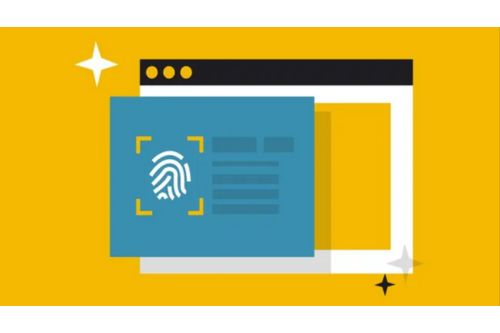Anti Detect Browser: Enhancing Online Privacy
Introduction
In today’s digital age, maintaining online privacy and security is a significant concern. An anti detect browser is a powerful tool designed to help users protect their privacy by masking browser fingerprints and using proxies to avoid detection. This guide explores the features, benefits, and best practices for using anti detect browsers.
What is an Anti Detect Browser?
An anti detect browser is a specialized web browser designed to prevent tracking and detection by masking browser fingerprints. Browser fingerprinting is a technique used by websites to track users based on unique characteristics of their browser and device settings. By altering these characteristics, an anti detect browser helps users maintain their anonymity online.
Key Features of Anti Detect Browsers
Browser Fingerprinting Management
Anti detect browsers can modify various aspects of the browser fingerprint to make it appear unique and random.
- User Agent Spoofing: Change the user agent string to mimic different browsers and devices.
- Canvas Fingerprinting: Alter the canvas fingerprint to prevent tracking through graphical rendering.
- WebGL Spoofing: Modify WebGL parameters to avoid detection based on graphics capabilities.
Proxy Integration
Using proxies is essential for maintaining anonymity. Anti detect browsers support seamless proxy integration to mask your IP address and location.
- IP Rotation: Rotate proxies to prevent IP bans and maintain anonymity.
- Geo-Spoofing: Use proxies from different locations to access geo-restricted content.
Multi-Session Management
Manage multiple browser sessions simultaneously without cross-session tracking. This is particularly useful for tasks like managing multiple social media accounts or conducting web scraping.
- Isolated Sessions: Each session operates independently, with no shared cookies or cache.
- Session Profiles: Create and save different browser profiles for various tasks.
Benefits of Using Anti Detect Browsers
Enhanced Online Privacy
By masking your browser fingerprint and using proxies, anti detect browsers help protect your online privacy. This prevents websites from tracking your online activities and collecting data about you.
- Anonymity: Maintain anonymity by altering identifiable browser attributes.
- Data Protection: Protect your personal information from being collected by websites.
Avoiding IP Bans
Websites often ban IP addresses that show suspicious behavior, such as multiple accounts or automated actions. Anti detect browsers help avoid IP bans by using rotating proxies and masking browser fingerprints.
- IP Rotation: Prevent IP bans by regularly changing your IP address.
- Behavior Masking: Mimic normal user behavior to avoid detection.
Accessing Geo-Restricted Content
Proxies allow you to access content that is restricted to specific geographic locations. Anti detect browsers make it easy to switch between different proxy locations to access the content you need.
- Geo-Spoofing: Access websites and content available only in certain regions.
- Unrestricted Browsing: Bypass geographical restrictions to enjoy unrestricted internet access.
Use Cases for Anti Detect Browsers
Web Scraping
When scraping data from websites, it’s essential to avoid detection and IP bans. Anti detect browsers can rotate proxies and mask browser fingerprints to ensure your scraping activities remain undetected.
- Data Collection: Gather data from multiple websites without being blocked.
- Anonymity: Maintain anonymity while scraping sensitive information.
Social Media Management
Manage multiple social media accounts without getting banned. Anti detect browsers help keep your accounts safe by mimicking different users and rotating IP addresses.
- Account Management: Safely manage multiple accounts from one device.
- Engagement Automation: Automate interactions while avoiding detection.
Digital Marketing
Run multiple ad accounts and marketing campaigns without being flagged by platforms for suspicious activity. Anti detect browsers help you maintain different profiles and rotate IP addresses.
- Campaign Management: Handle multiple ad campaigns without interference.
- Profile Isolation: Keep different marketing profiles separate and secure.
Best Practices for Using Anti Detect Browsers
- Regularly Update Profiles: Regularly change your browser fingerprint and proxy settings to stay ahead of tracking techniques.
- Use Reliable Proxies: Invest in high-quality proxies to ensure reliable and secure connections.
- Avoid Predictable Patterns: Vary your browsing behavior to mimic real user activity and avoid detection.
About CtrlFire
CtrlFire is a leading provider of browser automation and privacy solutions designed to enhance online operations for businesses and individuals. With advanced anti detect browser features, CtrlFire helps users protect their privacy, avoid detection, and access geo-restricted content seamlessly.
Conclusion
Anti detect browsers are essential tools for maintaining online privacy and security. By masking browser fingerprints and using proxies, these browsers help users avoid detection, prevent IP bans, and access restricted content. CtrlFire offers robust anti detect browser solutions tailored to meet the diverse needs of businesses and individuals.
For more information on CtrlFire and its anti detect browser capabilities, visit CtrlFire.
Recent Posts
- Marketing in the Age of Restrictions: Reinventing Alcohol Ads
- Social Media Unfiltered: A Controversy of Content Moderation vs. Free Speech.
- Dealing with the Chrome Extension Mess: How to Keep Your Browser Safe
- Revolutionizing Reach: How AI is Shaping the Future of Advertising
- Navigating TikTok’s Uncertainty: How CtrlFire Empowers Marketers to Adapt





